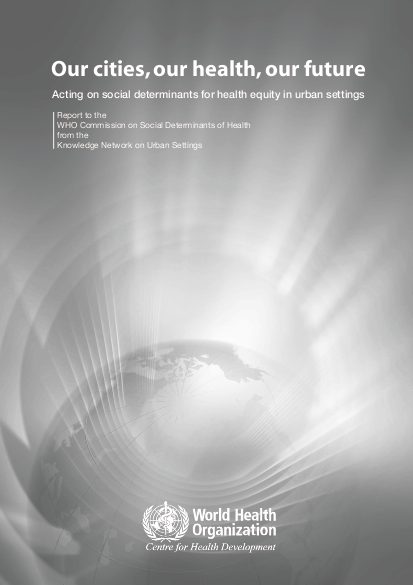Report to the WHO Commission on Social Determinants of Health from the Knowledge Network on Urban Settings

This KNUS report summarizes the findings concerning structural and intermediate social determinants of health that are of importance in the urban setting. The framework of the Commission on Social Determinants of Health (CSDH) guided the work. While unmasking the health inequities and inequalities in urban settings, it was decided at an early stage to make a strategic focus on slums and informal settlements where one billion people live in deplorable conditions. This number may double in coming decades unless appropriate policies for economic, social and health equity are developed and implemented. An example of the health inequalities in these circumstances is the strong gradient in infant and child mortality rates within Nairobi, Kenya, with rates in the slums more than three times higher than the city average and possibly ten or more times higher than in the richer parts of the city. Other data from Africa shows that these mortality rates among the urban poor are, on average, almost as high as the rates among the rural poor, while among the richer urban groups the rates are the lowest.
Resource collections
- UN Habitat - Urban Response Collection
- Urban Response - Urban Crisis Preparedness and Risk Reduction
- Urban Response Collection - Community Engagement and Social Cohesion
- Urban Response Collection - Economic Recovery
- Urban Response Collection - Environment and Climate Change
- Urban Response Collection - Housing, Land and Property
- Urban Response Collection - Urban Crisis Response, Recovery and Reconstruction
- Urban Response Collection - Urban Resilience